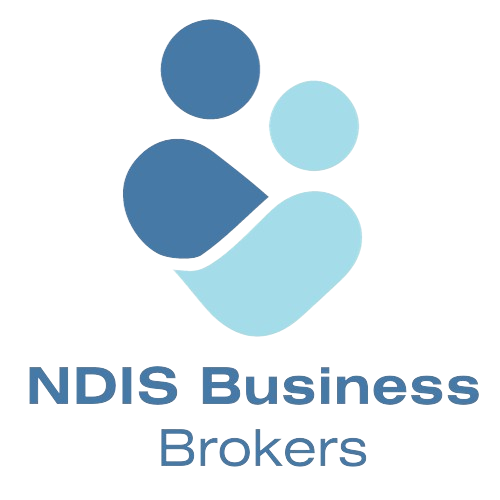
How to Find Funding Opportunities for Your NDIS Business
Running a business in the National Disability Insurance Scheme (NDIS) market can be both rewarding and challenging. The demand for disability services continues to grow, and with it comes new opportunities for service providers, investors, and entrepreneurs. Whether you’re launching your own NDIS company, expanding existing services, or even exploring NDIS businesses for sale, one of the biggest hurdles you’ll face is funding.
Getting access to the right funding can be the difference between constant growth and fighting to keep up. In this article, we’re going to break down the various funding options available, pragmatic methods for getting them, and what you should have ready before applying.
Why Funding Matters in the NDIS Market
The NDIS is unique because it operates within a highly regulated environment. Compliance, staff training, and service quality are non-negotiables but they all require investment. On top of that, providers often face cash flow challenges due to delayed payments within the NDIS system. Having reliable funding ensures your NDIS company can continue delivering high-quality care while also planning for long-term growth.
Funding isn’t just for startups either. Established providers often seek financial support when they want to expand into new service areas, hire more staff, or invest in technology. Similarly, buyers interested in an NDIS business for sale often need funding to cover acquisition costs and build on existing operations.
Step 1: Identify Your Funding Needs
Before you start looking for funding, clarify your goals. Are you:
- Launching a new NDIS company?
- Expanding services within your existing business?
- Looking at NDIS businesses for sale and need capital for acquisition?
Your funding approach will depend on your situation. A startup provider may lean on grants or loans, while an established business might attract investors or partnerships. Having clarity on your purpose will save you time and make your applications stronger.
Step 2: Explore Government Grants and Programs
The first place to look for support is government-backed funding. The National Disability Insurance Agency (NDIA) and state-based disability organisations often provide grants designed to help providers grow. These grants can fund staff training, service expansion, accessibility improvements, or new equipment.
The advantage of grants is that they don’t need to be repaid but competition is high. To stand out, you’ll need a strong business plan that clearly shows how the funding will improve participant outcomes and contribute to the NDIS sector as a whole.
Step 3: Consider Investors
Investors are increasingly looking at the disability services sector because it’s one of the most resilient and fast-growing markets in Australia. If you can demonstrate a sustainable business model, strong compliance, and a track record of participant satisfaction, private investors may be willing to fund your growth.
For buyers exploring an NDIS business for sale, investors can also play a key role in financing acquisitions. Partnering with the right investor can provide not just financial backing but also valuable expertise and connections.
Step 4: Look into Loans and Finance Options
Traditional bank loans and financing options are another way to secure capital. These can help cover startup costs, expansion, or acquisitions. However, it’s important to carefully review interest rates, repayment terms, and eligibility requirements.
For those purchasing NDIS businesses for sale, banks may require detailed financial records of the business you’re acquiring. Having access to this data and a clear forecast of future growth will strengthen your application.
Step 5: Crowdfunding and Community Support
If your NDIS company has a strong story or a unique approach to disability services, crowdfunding may be a creative funding option. Platforms allow you to raise money from a large pool of supporters who believe in your mission. This works especially well for providers introducing innovative programs that resonate with the wider community.
While crowdfunding may not cover all your costs, it can complement other funding streams and help build visibility for your business.
Step 6: Explore Partnerships
Collaboration is another smart way to access resources. By partnering with other providers, healthcare organisations, or community groups, you can pool funds and expertise to achieve shared goals. Partnerships often strengthen service offerings and make funding applications more compelling to agencies and investors.
For example, if you’re eyeing an NDIS business for sale, forming a partnership may make the purchase more feasible by spreading financial risk and combining operational strengths.
Step 7: Strengthen Your Business Plan
No matter what type of funding you’re seeking—grants, loans, or investor support—a solid business plan is essential. It should include:
- A clear mission and vision.
- Services offered and target participant group.
- Market analysis, including competitors.
- Financial forecasts and cash flow projections.
- Compliance and risk management strategies.
Funders want to see that your NDIS company is sustainable, compliant, and capable of delivering long-term results. A well-prepared plan demonstrates professionalism and increases your credibility.
Step 8: Leverage Your Network
Networking within the NDIS community can open doors to funding opportunities you may not find online. Attend industry conferences, workshops, and networking events. Join online forums where providers share advice and funding leads. Connections with other NDIS professionals can often point you toward grants, partnerships, or even private investors.
Final Thoughts
The NDIS market continues to expand, and with it comes incredible opportunities for providers and investors alike. Whether you’re just starting your business, looking to add more services to your NDIS Business, or considering an NDIS business for sale, going for the right funding can help your business start on the right track
From government grants and private investors to loans, crowdfunding, and partnerships, numerous funding options are available. It all depends on knowing your specific needs and doing thorough research and having a good business plan that reflects your capacity to expand and deliver quality services.
With proper financial assistance, your NDIS business can thrive in this competitive market offering life-changing support for participants and building a viable and profitable business.
Frequently Asked Questions
Funding for NDIS businesses for sale can come from bank loans, private investors, government grants, or partnerships. The right choice depends on your business goals, cash flow, and long-term strategy.
It can be competitive, but not impossible. Most lenders and investors will want to see the financial records of the existing business, compliance history, and a clear plan for growth before approving funding.
Yes. New providers may be eligible for NDIA grants and other government programs designed to support innovation, training, and service expansion in the disability sector.
Absolutely. Whether you’re starting an NDIS company or buying into NDIS businesses for sale, funders want to see a detailed business plan that covers services, compliance, financial forecasts, and long-term sustainability.
Networking with other providers, investors, and industry groups can open doors to funding opportunities not always advertised publicly. Connections often lead to partnerships, referrals, or co-investment opportunities in the NDIS space.























































